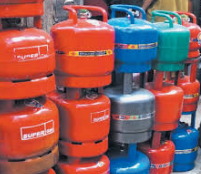LPG cylinder tanks are indispensable for households worldwide, offering a reliable source of energy for cooking and heating.
Understanding the Components of a Gas Cylinder Tank
A typical gas cylinder tank comprises a steel container, pressure regulator, valve, and safety devices ensuring secure operation.
Safety Measures and Guidelines for Handling LPG Cylinder Tanks
Always store LPG cylinder tanks upright in well-ventilated areas away from heat sources and flammable materials.
Advantages of Using LPG Cylinder Tanks Over Alternative Fuels
LPG cylinder tanks provide consistent energy, are environmentally friendly, and offer cost-effective benefits compared to other fuel options.
Different Types of LPG Cylinder Tanks Available in the Market
Choose from various sizes and materials, including steel and composite cylinders, catering to different household needs and preferences.
Maintenance Tips to Prolong the Lifespan of LPG Cylinder Tanks
Regularly inspect tanks for leaks, rust, or damage and ensure proper ventilation and storage conditions to prevent accidents.
Environmental Impact of LPG Cylinder Tanks and Sustainability Practices
LPG cylinder tanks produce fewer greenhouse LPG emissions and promote sustainable energy practices in residential and commercial settings.
Innovations in Gas Cylinder Tank Technology and Future Trends
Advancements include smart sensors for monitoring LPG levels and improved materials for durability and safety in everyday use.
Common Misconceptions About Gas Cylinder Tanks Debunked
Contrary to popular belief, properly maintained LPG cylinder tanks pose minimal risks and ensure safe household energy usage.
Choosing the Right Size Gas Cylinder Tank for Your Household Needs
Consider your cooking habits and frequency of use to select an appropriate size LPG cylinder tank.
Safety Precautions When Installing Gas Cylinder Tanks in Residential Areas
Follow manufacturer guidelines and local regulations to ensure proper installation and safe operation of LPG cylinder tanks.
Benefits of Portable Gas Cylinder Tanks for Outdoor and Camping Activities
Portable LPG cylinder tanks offer convenience and reliability for outdoor cooking and camping trips, enhancing recreational experiences.
Economic Advantages of Using Gas Cylinder Tanks for Cooking and Heating
LPG cylinder tanks provide cost-effective energy solutions compared to electricity or other traditional fuel sources for households.
Health and Environmental Benefits of Cooking with Gas Cylinder Tanks
Cooking with LPG cylinder tanks results in cleaner air indoors and reduces the environmental impact compared to other fuels.
Emergency Preparedness: How Gas Cylinder Tanks Ensure Continuous Energy Supply
LPG cylinder tanks provide a stable energy source during power outages or emergencies, ensuring cooking and heating capabilities.
Innovative Uses of Gas Cylinder Tanks Beyond Residential Applications
LPG cylinder tanks are utilized in industries like hospitality, catering, and agriculture for their efficiency and reliability in operations.
Educational Resources and Training for Safe Handling of Gas Cylinder Tanks
Learn proper handling and safety protocols through educational materials and training sessions to prevent accidents and ensure safety.
Regulatory Compliance and Standards Ensuring Quality and Safety of LPG Cylinder Tanks
LPG cylinder tanks adhere to stringent regulatory standards to guarantee their quality, safety, and environmental sustainability in everyday use.
Community Impact: LPG Cylinder Tanks in Developing Regions and Urban Areas
LPG cylinder tanks improve living conditions by providing clean and affordable energy solutions in developing regions and urban communities.
Technological Innovations Enhancing the Efficiency of LPG Cylinder Tanks
Explore advancements in tank design and materials that improve safety, efficiency, and user experience in residential settings.
Comparative Analysis: Gas Cylinder Tanks vs. Alternative Energy Sources
Evaluate the benefits and drawbacks of LPG cylinder tanks compared to electricity, biomass, and other renewable energy sources.
Consumer Awareness and Education Campaigns Promoting Safe Usage of Gas Cylinder Tanks
Highlight initiatives aimed at educating users about proper handling, storage, and maintenance practices to enhance safety.
The Role of Government Policies in Regulating the Gas Cylinder Tank Industry
Examine policies and regulations governing the production, distribution, and usage of LPG cylinder tanks to ensure public safety.
Case Studies: Successful Implementation of Gas Cylinder Tanks in Different Cultural Contexts
Analyze how LPG cylinder tanks have been integrated into diverse cultural and societal contexts, addressing specific energy needs.
Corporate Social Responsibility Initiatives in Promoting Access to LPG Cylinder Tanks
Explore how companies support community access to LPG cylinder tanks through CSR initiatives, improving energy accessibility and sustainability.
Challenges and Solutions in Distributing LPG Cylinder Tanks to Remote Areas
Discuss logistical challenges and innovative solutions in delivering LPG cylinder tanks to remote and underserved regions globally.
Future Prospects: Emerging Trends in Gas Cylinder Tank Technology and Usage
Predict trends such as smart technology integration and sustainable practices shaping the future of LPG cylinder tanks.
Collaboration Between LPG Cylinder Tank Manufacturers and Energy Sector Stakeholders
Examine partnerships between manufacturers, distributors, and energy providers to enhance efficiency and safety standards across the industry.
Impact of Climate Change on the Future Demand for LPG Cylinder Tanks
Assess how climate change influences energy choices and the demand for LPG cylinder tanks as a sustainable alternative.
Conclusion: The Role of LPG Cylinder Tanks in Modern Living
LPG cylinder tanks are essential for households, offering safe, reliable energy for cooking and heating with minimal environmental impact.





